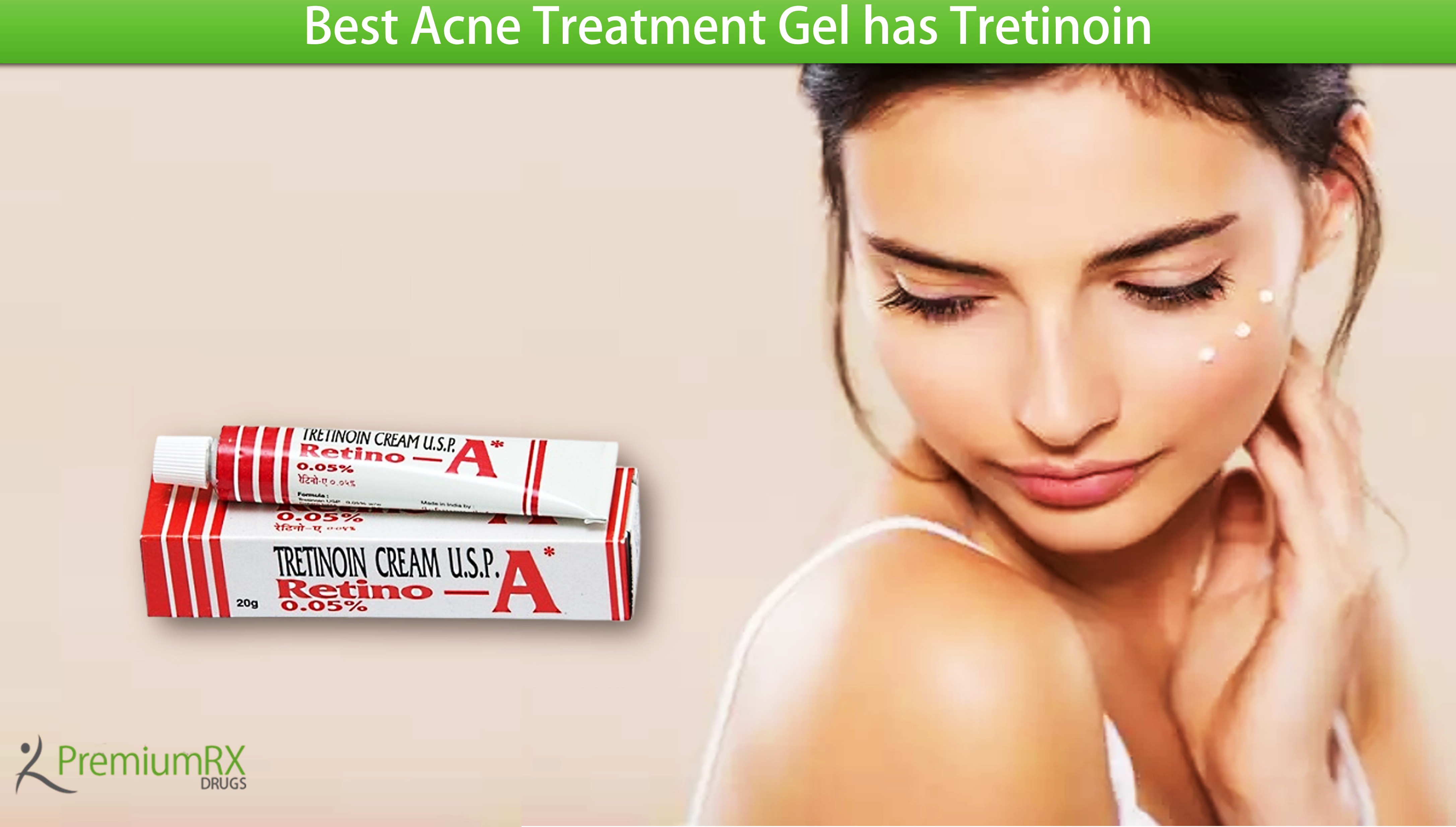Tretinoin cream 0.05% helps treat stubborn skin acne. Keep reading to find out what you should know about the product before trying to treat acne.
What is Tretinoin cream 0.025%?
A group of dermatologists have consistently recommended that most patients with acne be treated with topical retinoids. This is based on clinical data and evidence that the pharmaceutical ingredient has different and complementary modes of action that target multiple aspects of acne’s complex pathophysiology.
Tretinoin is topical vitamin A acid that normalises the turnover of skin cells, causing the expulsion of comedones and inhibiting further come done formation. If you are dealing with acne, you may have looked into using this product to eliminate acne and stop breakouts from affecting your skin. According to research studies, Tretinoin is one of the most effective anti-acne medications that helps remove existing acne and prevent acne from returning. Tretinoin is considered the mainstay of therapy for acne. It is designed to be applied to affected areas of the skin.
Tretinoin for acne
Tretinoin offers several benefits as a skin care agent, including clearing acne breakouts and improving skin texture. It is approved by the Food and drug administration (FDA) for acne vulgaris. While results aren’t immediate, it can often remove even the hardest acne breakouts. The regular application of Tretinoin helps to prevent acne breakouts. When used as a long-term therapy, it helps control acne breakouts and prevent return from them. Although best known for eliminating acne, Tretinoin also has anti-ageing benefits.
Research has shown that it can make fine lines and wrinkles less visible. The anti-acne agents make clearer, smoother skin. By treating acne, lighting fine lines, and removing other skin imperfections, Tretinoin helps to improve your acne and give it smoother skin. Regular application also improves skin discolouration. It is equally effective and FDA-approved for treating hyperpigmentation, a common ageing-related skin condition. Skin problems can make certain areas of your skin darker than others.
Mechanism of action
Tretinoin has several effects on your skin that prevent acne and improve. To find out the action mechanism of Tretinoin, it is important to understand how and why acne develops. Acne lesions such as black and whiteheads occur when skin follicles are clogged with sebum and dead skin cells. Our sebaceous glands produce oil (sebum) crucial in sealing moisture and protecting your skin from damage. However, when this gland produces excessive sebum, it can accumulate inside your hair follicles, leading to blockages.
Our skin tries to maintain itself through skin cell turnover to reduce the adverse effects of sun exposure and other environmental damage. During the process, new skin cells produce in the base layer of our skin and travel to the top layer to replace the old or existing ones. These existing dead skin cells are eventually shed in the environment. These dead cells then mix with sebum and from plugs that cause clogging of hair follicles and form acne.
Blackheads and whiteheads are mild forms of acne. A more severe form of acne develops when bacteria are trapped inside an acne lesion, which can contribute to inflammation and lead to papules, pustules, and cystic acne. All these are severe forms of acne.
Although Tretinoin’s exact mode of action is still not understood, studies have revealed several ways that Tretinoin deals with the development of acne. Firstly, Tretinoin speeds up the skin cell turnover number, which means new ones rapidly replace dead skin cells. Secondly, the retinoid formulation removes dead skin cells from your skin and sheds them into the environment. This reduces the buildup of dead skin cells and leads to acne breakouts. Thirdly, Tretinoin causes a significant reduction in the size of hair follicles in your skin, making your sebaceous gland produce excessive sebum.
Last, research has also found that retinoid preparation can stimulate collagen production, which may help treat skin ageing and acne scarring. Because of all these effects, Tretinoin helps to clear out acne-affected skin and, in most cases, prevents breakouts from occurring again.
Effectiveness of Tretinoin
Numerous research studies have found that Tretinoin is one of the most effective topical formulations for eliminating acne lesions and preventing them from returning. In clinical trials, those who used this retinoid formulation experienced a significant reduction in acne; researchers found that people who applied the formulation once nightly experienced improvements in acne even when it was on the skin for only thirty minutes.
Researchers and skin care experts concluded that topical retinoids like Tretinoin are extremely beneficial for treating acne and are most effective when used with oral antibiotics or topical benzoyl peroxide.
Marie
Latest posts by Marie (see all)
- Revize Micro Gel 0.025% | Uses, Price, Side effects - April 9, 2025
- What is Evalon Cream: How to Apply, Benefit, who Can Use - April 4, 2025
- Understanding Avanair 200 mg: A Comprehensive Guide - April 4, 2025




